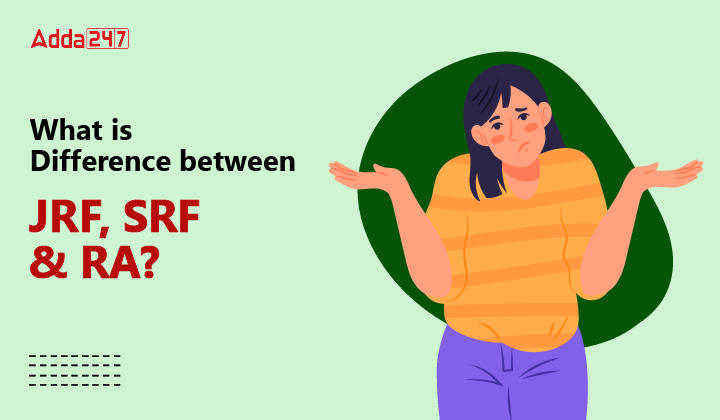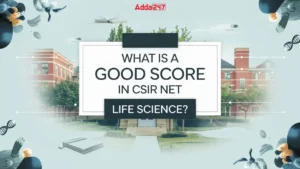Table of Contents
Qualifying the UGC NET exam unlocks diverse career paths in academia, research, and public sector undertakings (PSUs). Among these, pursuing research and academics stands out as a particularly prestigious and rewarding choice. The Junior Research Fellowship (JRF) serves as the foundational step for a research career, enabling candidates to pursue a PhD and later progress to Senior Research Fellowship (SRF) or Research Associate (RA) roles. This article provides a detailed comparison of JRF, SRF, and RA positions, guiding aspirants toward informed decisions for their advanced academic and research journeys.
What is the JRF?
JRF stands for Junior Research Fellowship. It is a prestigious research fellowship awarded to candidates who clear the UGC NET (University Grants Commission National Eligibility Test) examination and rank among the top candidates. JRF is offered to support and promote research activities among Ph.D. candidates and research scholars by providing them with monthly stipends.
| JRF Overview | |
| Age limit |
|
| Stipend | 37,000 |
| Stipend period | First two years of Ph.D. |
| Educational Qualification | A minimum of 55% in Masters |
| Awarded by | UGC-CSIR |
What is the SRF?
SRF or Senior Research Fellowship refers to the fellowship after the JRF. Once you complete the first two years of your Ph.D. as a Junior Research Fellow, you are promoted to Senior Research Fellow and enjoy the SRF benefits from the third year onwards of your research in your Ph.D. degree course. Let’s take a quick look at the main highlights to understand it further.
| SRF Overview | |
| Age limit | 32-35 years |
| Stipend | 42,000 |
| Stipend period | 3 years after the JRF |
| Educational Qualification | Same as JRF. However, in the case of direct SRF, 3 years of Research experience after the Master’s is compulsory. |
| Awarded by | UGC-CSIR, individual Institutions engaged in research activities. |
What is a RA?
RA, or Research Assistantship, is often recruited on a temporary contract basis to “assist” and carry out research activity. A university, a research institute, or a privately held organization offers an RA. This position has a handsome monthly stipend to assist in academic or private research. Research Assistantship is also offered in exchange for partial or full tuition and or stipend. Let’s take a look at the highlight in brief.
| RA Overview | |
| Age limit | 30-45 years (vary on institutions) |
| Stipend |
|
| Stipend period | Generally, 3 years or less. |
| Educational Qualification | Ph.D. and one research publication in Standard Journal. Research Experience Post-doc is also asked in many cases. |
| Awarded by | Individual Institutions engaged in research activities. |
Difference between JRF, SRF, & RA
As you must have observed from their highlights, there is a hierarchy to the fellowship and financial assistance offered to those pursuing academics and research. Here are the significant differences between JRF, SRF, & RA that you should keep in mind.
| Feature | JRF (Junior Research Fellowship) | SRF (Senior Research Fellowship) | RA (Research Associate) |
|---|---|---|---|
| Eligibility | Master’s degree with at least 55% marks (50% marks for reserved categories) from a recognized university or equivalent | Master’s degree with at least 55% marks (50% marks for reserved categories) from a recognized university or equivalent and two years of research experience | PhD degree from a recognized university or equivalent and five years of research experience |
| Tenure | 2 years | 3 years | 5 years |
| Stipend | Rs. 37,000 per month | Rs. 42,000 per month | Rs. 58,000 to Rs. 63,000 per month depending on the level of experience |
| Position | Entry-level research position | Higher-level research position | Research position requiring higher qualifications and research experience |
| Post Status | Temporary position typically for two years | Typically offered for a fixed tenure of three years, extendable based on certain conditions | Can be temporary or permanent, depending on the specific project or research institution |
| Primary Focus | Conducting research under the guidance of a senior researcher | Conducting independent research and guiding junior researchers | Carrying out advanced research and leading research projects |
| Promotion | Eligible for promotion to SRF after successful completion of JRF tenure | Eligible for promotion to RA after successful completion of SRF tenure | Can be promoted to senior positions based on their performance and contributions |
| Admission Exam | UGC NET or CSIR NET | There is no standard SRF examination | No exam |
| Age Limit | 35 years | 32-35 years | 30-45 years |




 What Is A Good Score In CSIR NET Life Sc...
What Is A Good Score In CSIR NET Life Sc...
 How can a Candidate take Admission into ...
How can a Candidate take Admission into ...
 How Do I Crack CSIR NET Life Sciences? C...
How Do I Crack CSIR NET Life Sciences? C...




